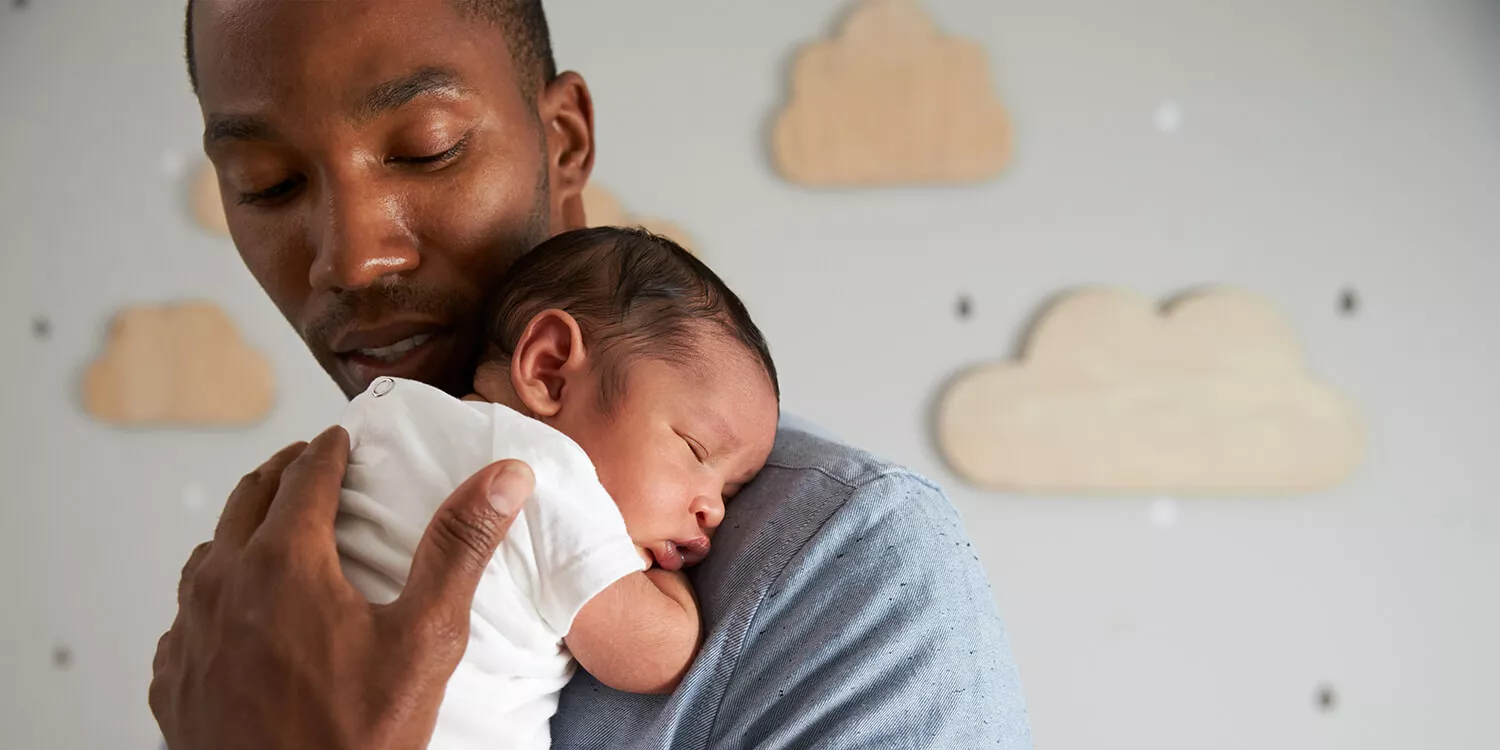Sleep – or rather a lack of it – is one of the biggest issues for parents. It’s no wonder that if the child sleeps badly, the parents also lack a restful recovery phase at night. The problems can be far-reaching, and sleep deprivation can eventually even lead to depression. But at what point do babies and toddlers start to suffer from sleep disorders? And what can you do about it?
Sleep in babies
During the first month after birth, the sleep pattern of newborn babies is usually the same as it was in the womb. Only with time will an infant switch to a day-night pattern. This means that the sleep periods are short at the beginning, alternating with equally short waking phases, and are distributed throughout the day.
Sleep is slowly regulated as follows:
- External stimuli such as day and night changes, breastfeeding and feeding times, nappy changes, and the family routines (everyday life – peace and quiet at night) also shape the baby's rhythm over time.
- When this happens varies greatly from child to child, as this depends not only on the behavior of the family and their day-to-day routine, but also on biological factors. Certain areas of the brain must first mature before the baby is able to sleep through the night and develop a regular sleep-wake pattern.
- The need for sleep varies from person to person – even in newborns. Most babies sleep for around 14 to 17 hours per day. And most infants have switched to a longer nightly sleep phase by 6 months, i.e., they sleep less during the day.
But what should you do if your newborn won’t sleep. Keep reading to discover our newborn sleep tips:
Tips on how to put your baby to sleep:
- Keep a sleep log: this is the only way to identify specific characteristics and to find out how much sleep the baby needs.
- Structure the daily routine: children love routine. The body also adapts better to set activities.
- Cultivate a bedtime routine: the same processes every night signal to baby and its body that it is now time to go to sleep. Security gives peace of mind and helps with sleep.
- Be patient: habits do not change overnight.
- Remain calm: stress can be transferred to little ones.
- Optimize the sleeping arrangements: these are ideal when every family member feels comfortable. However, the optimum arrangements will differ greatly from one individual to another. Some parents feel more comfortable when the child is in the bedroom (e.g., in a co-sleeper bed), while others prefer their baby to have their own room from a certain age.
How sleep behavior changes
The sleeping behavior of babies changes greatly over the first two years of life and slowly levels off at around 12 hours of sleep per day. But there are also major individual differences.
Many toddlers have problems sleeping. Even at 3 to 4 years of age, problems with falling asleep can still occur. In addition, night terrors, nightmares, and talking in their sleep keep some little ones awake and, depending on their nature, can be challenging for the whole family.
However, we only speak of sleep disorders when a specific problem is apparent over a longer period of time.
A distinction is made here depending on the sleep phase affected:
1. Difficulty falling asleep:
a. Major efforts are usually required to help the child to fall asleep, e.g., carrying it around for a long time
b. At the age of 8 months and more, the child needs over 40 minutes to fall asleep
2. Trouble sleeping through the night:
a. The child wakes up often: at the age of 8 months and over, more than 3 times a night.
b. The child is awake at night for more than 60 minutes at the age of 8 months, and more than 45 minutes at the age of 12 months.
c. The child always needs its parents to fall asleep.
When talking about sleep and the sleeping environment, always consider the recommendations for the prevention of sudden infant death syndrome (SIDS).
If you feel overwhelmed by the sleep problem, it is best to consult your GP. Some cities also have their own sleep clinics, which offer help to exhausted parents.
Photos: Shutterstock
Sources:
Remo H. Largo, Babyjahre: Entwicklung und Erziehung in den ersten 4 Jahren, Piper Verlag GmbH, Munich/Berlin, 2017, p.203





